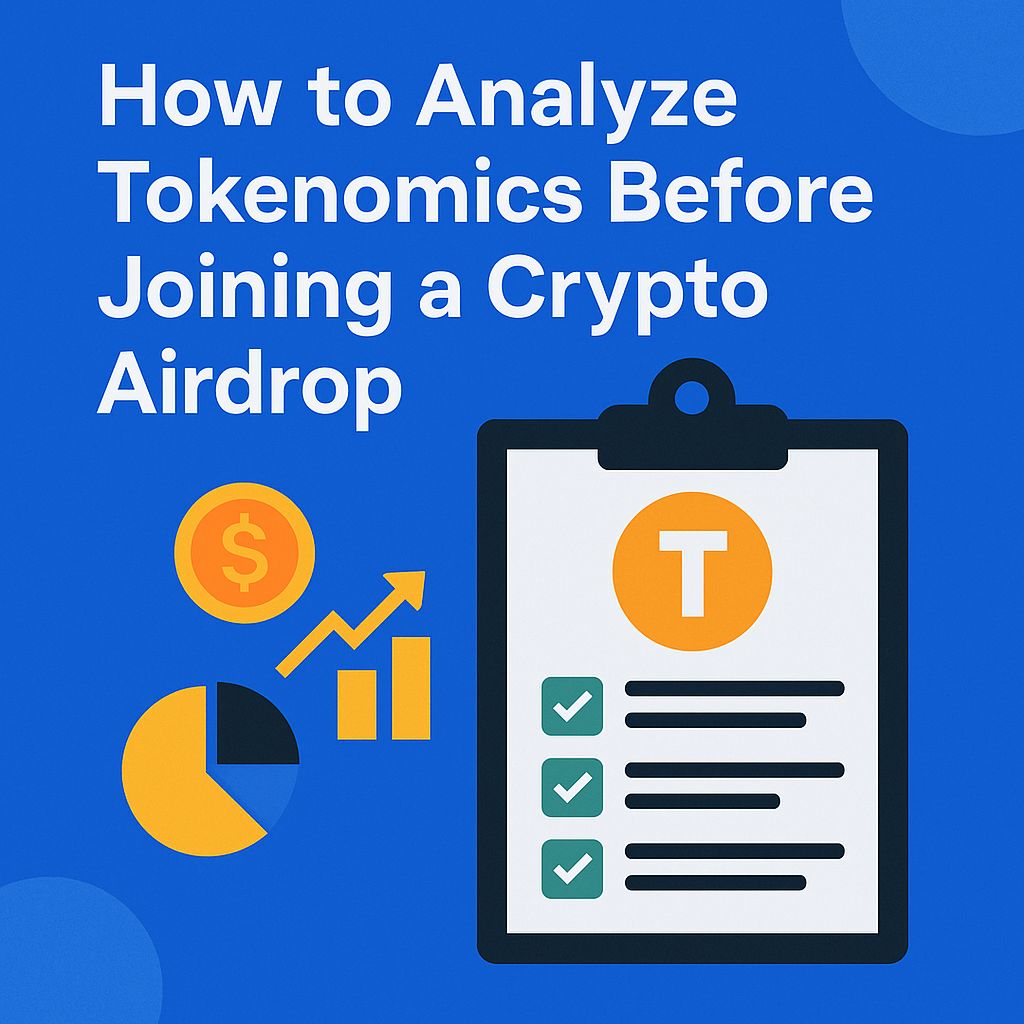Tokenomics of Projects in Drop Hunting
Drops are a way to earn tokens for being active in a project before its official launch. But! If you don’t understand the tokenomics, you might waste a lot of time and end up with nothing.

Below is a short guide on how to read tokenomics and choose projects where your efforts will actually pay off.
1️⃣ Total Supply
How many tokens will exist in total? The more there are, the lower the value of each one. A good range is between 1 and 10 billion.
2️⃣ Distribution
What percentage of tokens goes to the community, team, and investors? The more tokens allocated to regular users, the higher the chance of receiving a meaningful drop. Ideally, 30–40% should go to the community.
3️⃣ Vesting and Lock-up
Look for projects where the team and investors can’t sell all their tokens immediately. For the community, the opposite is better — the sooner you can claim your tokens, the better.
4️⃣ Airdrop Pool
Is there a specific percentage allocated for the drop? Are the conditions, platform, seasons, and XP program clearly defined? Ideally, projects announce something like: “We’re allocating 5% of all tokens for the drop.” Even better if they have XP programs (Zealy, Galxe, custom platforms) or ambassador programs with rewards.
5️⃣ TGE (Token Generation Event)
How many tokens will enter circulation on the day the token launches on an exchange? It’s better if it’s no more than 15–20% — otherwise, there’s a risk of a price dump.
6️⃣ Token Utility
What’s the point of the token? The more use cases it has, the greater the demand and post-drop stability. It’s good if the token gives access to product features, is required for governance votes, or used to pay fees.
7️⃣ Transparency and Integrity
Is there detailed documentation? Do they publish unlock schedules? Are the creators open and communicative?
🚩 Red Flag: A project might change the tokenomics right before launch. For example: 5% was promised for ambassadors — suddenly it’s 0.5%. 40% was allocated for the community — turns out it’s only 5% "in the first season".
🧠 An ideal project for drophunting looks like this:
✔️ Total supply around 1 billion
✔️ 40–50% allocated to the community and airdrops
✔️ Team and investors under a 2–3 year lock-up and vesting schedule
✔️ XP system, ambassador program, or clear quest structure
✔️ Transparent terms and open documentation
✔️ Token not launched yet, but a clear roadmap and active testnet exist
Topics
Recent comments
